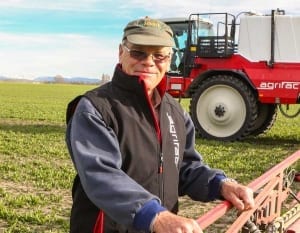
Eric Watson
Eric and Maxine Watson grow a wide range of crops in varying soil types on almost 500 hectares on the Canterbury Plains of New Zealand, and have specialised in the production of grains, grass, vegetables and legumes for seed. They bought their farm back in 1992. Eric’s parents were livestock farmers, but he wanted to grow crops instead. “We are the first and possibly the last generation here. Our son works in the US and our daughter is a practising archaeologist. You have to be passionate about what you do, so it’s quite understandable that they have their own career paths.”
The Watsons
Speaking to Eric in one of his plantain (plantago lanceolata) fields, he explains that plantain and chicory are grown by many livestock farmers in New Zealand, both as a single crop and mixed with grass for pasture. They are fast growing perennials that animals love, are resistant to pests, and have a high mineral concentration. Plantain can be mixed with clover and chicory to fatten lambs. Eric explains that plantain used to be considered a weed, it grows wild on roadsides and riverbeds, but he himself is now considered one of the best growers in the country for this crop. More commonly, he is known as one of New Zealand’s best seed producers.
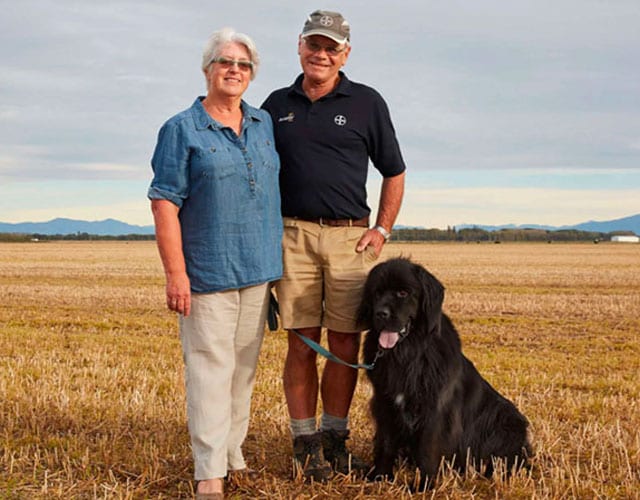
Achieving good results
Eric has contracts with a local company, South Pacific Seeds, who in turn have contracts with the Dutch company RijkZwaan for radish, spinach, and beet seed production. The seed is cleaned and dressed in New Zealand before being exported to The Netherlands. Eric says that there was little frost this winter, so late-sown seed crops did quite well, but there was a lot of rain which caused flooding and other problems. He prefers wheat himself, but the revenue is decreasing. “It’s a pity because growing the stuff is great. As is trying to get the best results.” Achieving good results is important to Eric and he challenges himself rather than competing against others.
Right amount of water
The annual rainfall here is about 600mm. Eric and Maxine are pioneers in variable rate irrigation, which is tied to the soil water holding capability and ensures that the crops get the right amount of water without wasting it. Seven of their nine lateral-move (linear) irrigators are fitted with this variable rate technology.
When their water consent had to be renewed in 2016, one well which was close to the Ashburton River was deemed to be hydraulically connected to it. They had to drill a new well to overcome this issue. On the advice of an agricultural consultant a new well was dug, looking for water on the same site but from a deeper aquifer.
After 200 metres of drilling and still no water, he stopped. “You’ve literally put NZD 150,000 down a hole that you’ll never get back. There are no grants. You’re on your own; risks and all. People don’t realise what efficient farming costs, nor do they realise the care we take to be sustainable. The very small percentage of housekeeping money that consumers are willing to spend on food can really trouble me. People will spend money on anything, but they want cheap food.”
Guinness Book of Records
Extensive soil tests are carried out regularly, base fertilisers are spread using variable rate technology to even up the fertility across the fields with resulting efficiencies in fertiliser use. Eric and Maxine always had high-yielding wheat crops, but now they’re in the Guinness Book of Records. In February 2017, they harvested 16,791 tonnes of wheat per ha. The wheat was planted at the beginning of April 2016.
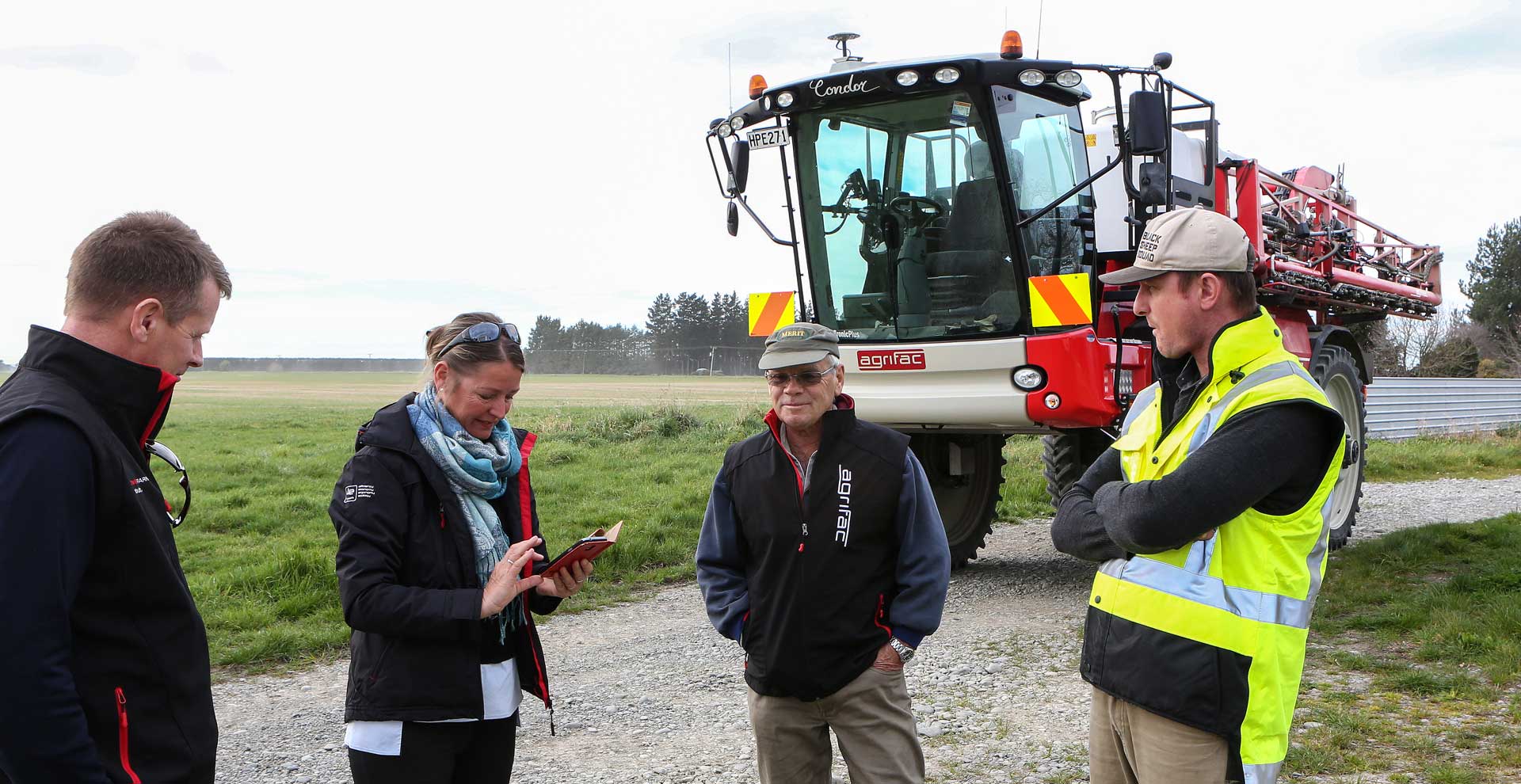
When someone from Bayer came up with the idea of setting a world record, they didn’t hesitate. “It doesn’t happen by itself you know; we worked very hard for it. Bayer helped tremendously, especially when it came to the paperwork recording the event; everything had to be documented, videoed and certified. It was a team effort really, but boy was it great to set a world record!” Eric cared for that high yielding winter wheat with the 4,000 litre Condor crop sprayer he was then driving. He now has a new Condor Endurance 8,000 litre with a 48-metre boom. Looking to the future, Eric thinks he can improve still: “It was an exceptionally high yield, but there’s no reason I can’t improve on it. Driving the combine harvester that day I could see where things could be done better!”
Learn More about Condor Endurance
Condor Endurance

Condor Endurance
- Built for maximal capacity and speed
- J-booms available up to 55 metres
- 8000 litre tank
- Red Dot Award Winning 2019
More user experiences

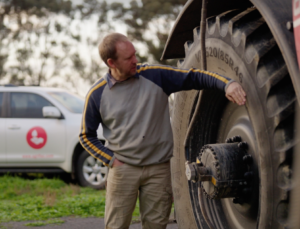
Tim Rethus
Rethus Broadacre have received delivery of their second Endurance II, which is surpassing all their expectations for capacity and accuracy.
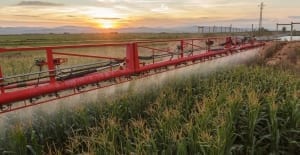
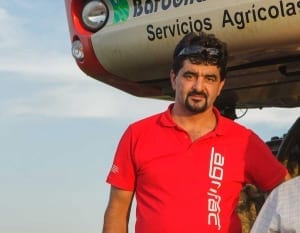
José Alberto Uriel
"As a company we are specialized in agricultural services with a main focus of crop protection. Our main goal is to help farmers gain the best possible yields." - José Alberto Uriel
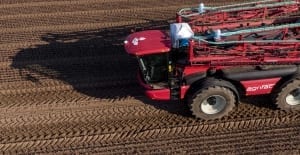
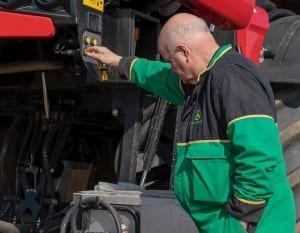
Dave Jones
PDM Produce were the first company in the UK with the new 8000 litre Agrifac Endurance II machine, complete with a 54 metre boom.











